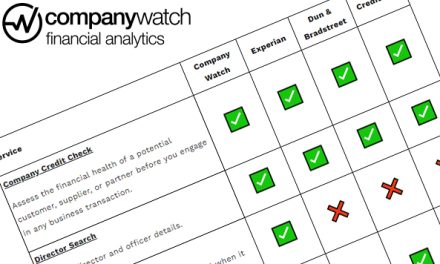Insight comes as Experian takes part in UK Black Business Show, aimed at supporting budding entrepreneurs fulfil their business ambitions
New analysis from Experian reveals the difficulty new businesses have in establishing themselves as successful, ongoing enterprises.
Around 4% of new businesses have ceased trading by the end of the first year of operations, the analysis found. But the failure rate rises significantly to more than a third (34%) by the end of the second and to half (50%) within just three years of opening.
Meanwhile, nearly two-thirds of businesses (60%) found as being in the highest risk categories for accessing new borrowing are firms which can be defined as ‘young’ – ones which have been formed in the last five years.
The analysis came ahead of the UK Black Business Show, which aims to support and arm budding black entrepreneurs with the information they need to get their business off the ground, including the importance of a positive business credit score.
 James McGarva, Managing Director of Business Information Services at Experian, said: “Our analysis reveals just how tough it can be for new businesses to establish themselves in the short and medium term, with a huge amount for entrepreneurs to consider to give themselves the best chance of success.
James McGarva, Managing Director of Business Information Services at Experian, said: “Our analysis reveals just how tough it can be for new businesses to establish themselves in the short and medium term, with a huge amount for entrepreneurs to consider to give themselves the best chance of success.
“New businesses are the foundation of our economy, and being a business owner is a fantastic and rewarding ambition. Every company, no matter how big or small, has a credit score, with it being the key to accessing credit to help it thrive, as well as being a highly predictive indicator of the business survival.
“We’re delighted to be supporting UK Black Business Show, encouraging would-be business owners to take their first step and share with them what they need to know.”
UK Black Business Show took place in London on Saturday October 7th. Experian hosted a session on why business credit scores are a vital component of a business’s success, tips on how a score can be improved, and how it relates to an owner’s individual score.
Business owners can find out more about business credit scores by visiting: https://www.experian.co.uk/blogs/latest-thinking/small-business/what-is-business-credit-score/.
Analysis conducted on number of limited companies opening/closure rates 2013-2022, Experian Business Information Services.
How can new businesses improve their business credit score?
- Pay your business bills on time to improve your payment performance and avoid action being taken to chase late or missed payments, which could lead to court judgments (such as CCJs) or insolvency proceedings. This will also help you to build good relationships with the businesses you work with. You can ask your suppliers or partners to share payment information on your behalf to credit reference agencies like us, to help build a positive payment history.
- File full accounts with HMRC and Companies House, rather than abridged, filleted or micro-entity accounts, on time and in line with guidelines, to provide more data about the financial health of your business.
- If any of your business information changes, such as your registered office address, update it quickly with HMRC and Companies House, and notify suppliers, partners and customers. This will help to keep your business credit score data accurate and up to date.
- Many lenders offer the option to check if you’re eligible for finance without impacting your credit rating. Without this option, applying for finance is likely to trigger a credit search on your business which is recorded on your business credit record. If your application is turned down, this could lower your credit score. Similarly, making several applications at once can also imply you’re struggling to secure finance. Use eligibility checkers or ask for a quote before applying to strengthen the chance of your application being approved, and only apply when you need to.
- If you’re a new start-up or a microbusiness, it’s important to use business finance rather than personal credit or personal guarantees to build up your business credit score and provide an accurate picture of your business’s financial health. This will help you to keep your personal and business finances separate and protect you from risk. In the meantime, lenders may look at your personal finances, if you have very little business information to share. Start by opening a business bank account to manage your business finances.
- Regularly check your business credit score and sign up for alerts that notify you when your credit record changes. This will help you to sort out any issues quickly and take advantage of the benefits as your credit score improves.
Source: Experian Press Release


























